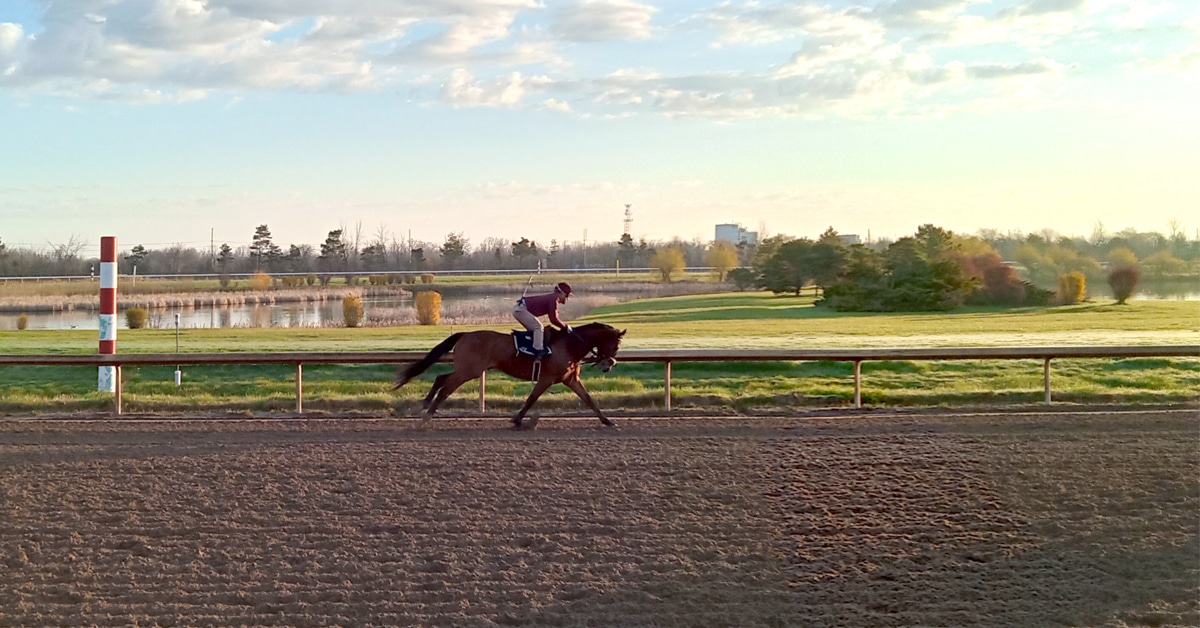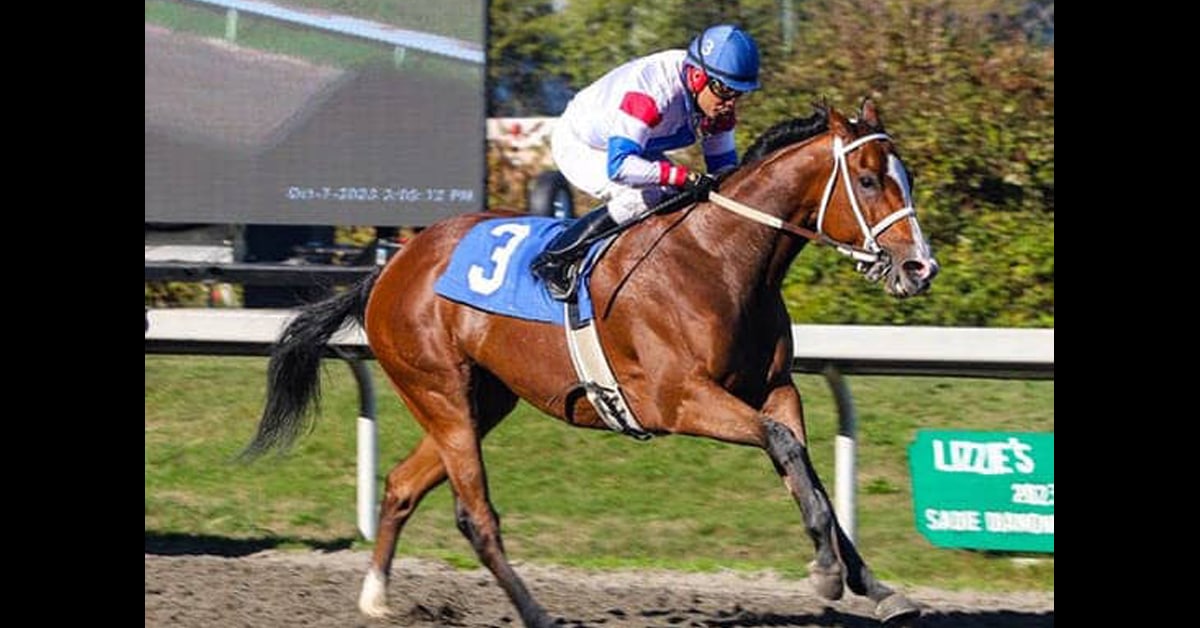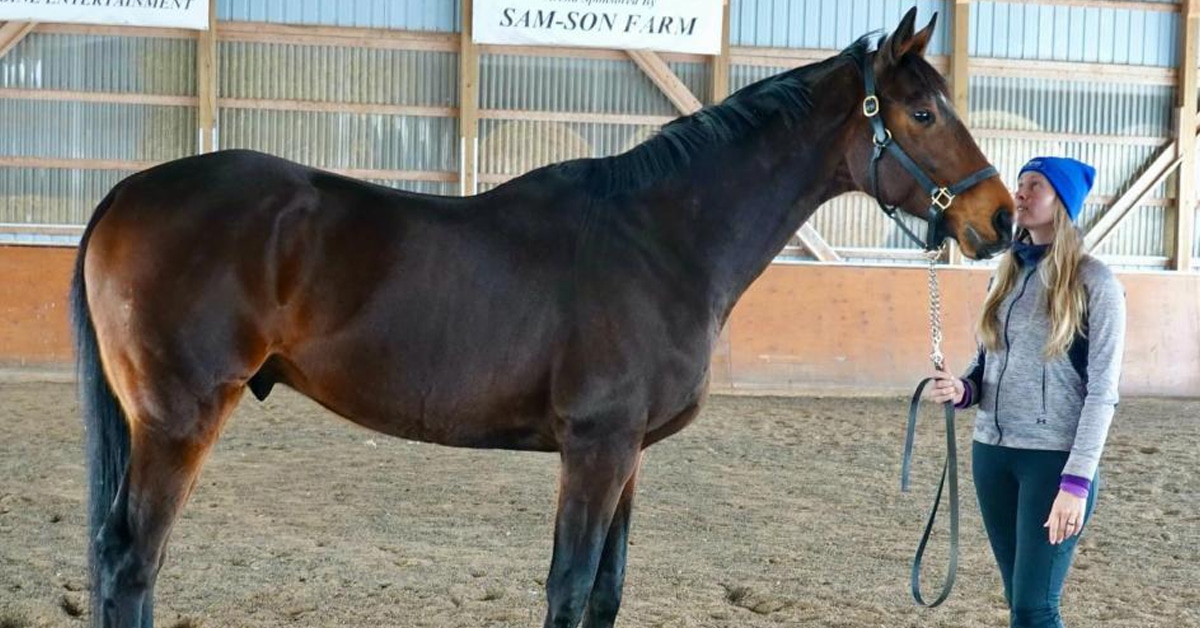Capsaicin positives continue to terrorize backstretches and horse farms across the country, leaving horsemen and racing’s regulators bewildered by its source, and trainers angered at what they feel is unfair punishment that will cause irreparable damage to their careers.
This week, Woodbine-based thoroughbred trainer Tony Gattellaro received notification that two of his horses in his stable tested positive for capsaicin, a derivative of chili pepper, bringing the total number of 45 cases of capsaicin positives since June of this year.
Gattellaro called it “a disgrace” that trainers continue to be dogged with positive tests when both horsemen and the regulatory bodies have no idea the source of the capsaicin, and said it is branding honest and hardworking horsemen as cheaters.
“I’m probably one of the most progressive trainers out there,” said Gattellaro, adding that he’s a proponent of the “Hay, Oats, Water” type of movement. “I am pro-horse, this business is my passion. It’s a stain against me and this is not something I will accept.”
The first cluster of capsaicin positives hit Woodbine Racetrack in June with trainers Mike DePaulo, Bill Tharrenos and Mike Mattine all having horses test positive. Capsaicin is considered a Class 2 drug, which carries a one- to five-year penalty and $10,000 fine.
An investigation by the Alcohol and Gaming Commission of Ontario (AGCO) this summer into the potential source of capsaicin led the commission to believe traces of the chili pepper was potentially coming from Buckley’s Zev, a widely used product in all equine disciplines to relieve coughs.
“I don’t even have that in my barn,” said Gattellaro of Buckley’s Zev, who went on to say a horse in his barn was drug tested after winning a race at Woodbine on October 22, and the test came back clean. Three days later the two horses tested positive.
“Are you telling me that during a capsaicin investigation someone is going to use capsaicin? Come on.”
“This is a travesty, nobody did anything wrong,” said Sue Leslie, president of the Horseman’s Benevolent and Protective Association. “It could have happened to any trainer on the backstretch. These are victims.”
According the Leslie, the HBPA has been heavily involved in advocating the horsemen’s innocence to the Canadian Pari-Mutuel Agency (CPMA) and AGCO since the first cluster of positive cases in June 2020. Thus far, the HBPA has negotiated with the CPMA to raise the threshold levels of capsaicin so that the trace amounts perhaps not listed as ingredients in feeds and therapeutic products will show up in drug tests. (A request for information from CMPA has so far gone unanswered.)
“We were able to get no fine, no penalty and a note on the record that horsemen affected by this will be held blameless and would not hold this as a positive against them,” said Leslie. “That’s a first.”
However, Leslie acknowledged for horsemen a note is not enough: what is really needed is for the CPMA and AGCO to agree to completely erase the Class 2 positive from their records and purse money returned. Eight Woodbine-based trainers have filed an appeal to the AGCO asking for their Class 2 to be wiped from their records and the purses for those races redistributed.
“We need a legislative change that permits CMPA and the AGCO to retract a positive,” she said. “Progress in my opinion has been made, but not enough.”
However, according to article 24.03 in the AGCO rules of racing, there is a mechanism by which the trainers could be exonerated:
“If any case occurs which is not or which is alleged not to be provided for by the Rules or if the imposition of the Rules would prove to be a hardship on any licensee, it shall be determined by the Registrar in such manner as he or she believes is in the best interest of racing. The Registrar may also, in his or her absolute discretion, at any time waive the breach of any of the Rules, which waiver or breach the Registrar does not consider prejudicial to the best interests of racing.”
Frank Roth, the lawyer representing the eight trainers, has successfully argued an appeal for an incident involving a Class 1 drug five years ago.
“I was successful with a meth matter back in 2015 for Larry Cappuccitti together with a Quarter Horse appellant,” said Roth. “The evidence was interesting because we were able to show that the meth had not gone through the horse. The panel determined that in the circumstances they would exercise discretion and found in favour of the appellants.”
In fact, over the years there have been several examples of the regulator setting aside rulings in similar cases which have allowed the original result to stand, purse money kept, and records expunged (see examples here, here and here).
Roth is still gathering evidence for the case and is waiting on split sample reports, which were orders by the HBPA.
For Gattelaro, something needs to give.
“I am one of the most passionate guys, and I am ready to leave the industry. I will fight this to the death of me.”
More from Industry:






